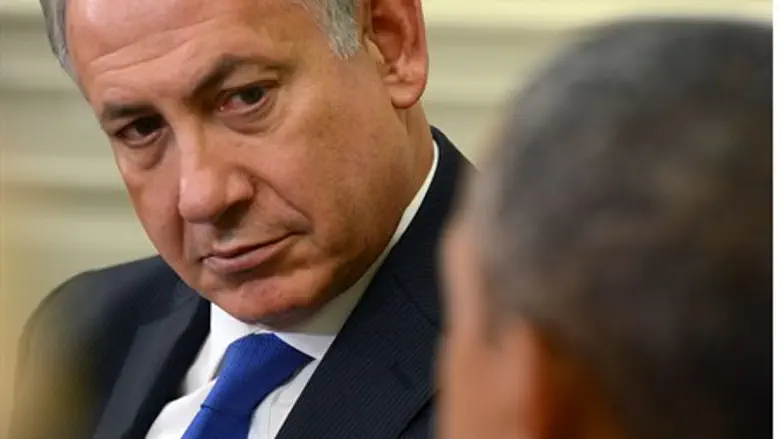
Prime Minister Binyamin Netanyahu showed unnamed Democrats a copy of his landmark Congress speech before he delivered it, according to a senior political journalist.
Writing in Makor Rishon's weekend supplement, Amnon Lord – who was on the plane with Netanyahu on the way to Washington and back, together with other journalists – explained:
"The dramatic buildup on the day of the speech centered on certain information that Netanyahu would reveal in the speech. And he apparently intended to do this, at first. But on the night before the speech, Netanyahu was busy rewriting certain parts of the speech that dealt with the deal. During his speech, there was a feeling that something like this had happened, and on the way home I asked one of the members of the prime minister's team if there had been serious last-minute rewrites.
"He said that a version of the speech was handed over to the Democrats, and that they requested that the prime minister forego detailing a certain aspect of the deal, to avoid embarrassing them.”
In the weeks before the speech, there were reports that the Obama administration was refusing to share information regarding Iran with Israel as “punishment” for Netanyahu’s speech. The Washington Post’s David Ignatius reported that the mistrust between the Obama administration and Netanyahu had widened because of suspicion in the United States that the Israeli prime minister authorized leaks of details about the U.S. nuclear talks with Iran.
“The decision to reduce the exchange of sensitive information about the Iran talks was prompted by concerns that Netanyahu’s office had given Israeli journalists sensitive details of the U.S. position, including a U.S. offer to allow Iran to enrich uranium with 6,500 or more centrifuges as part of a final deal,” wrote Ignatius.
“Obama administration officials believed these reports were misleading because the centrifuge numbers are part of a package that includes the size of the Iranian nuclear stockpile and the type of centrifuges that are allowed to operate. A deal that allowed 500 advanced centrifuges and a large stockpile of enriched uranium might put Iran closer to making a bomb than one that permitted 10,000 older machines and a small stockpile, the administration argues,” he continued.